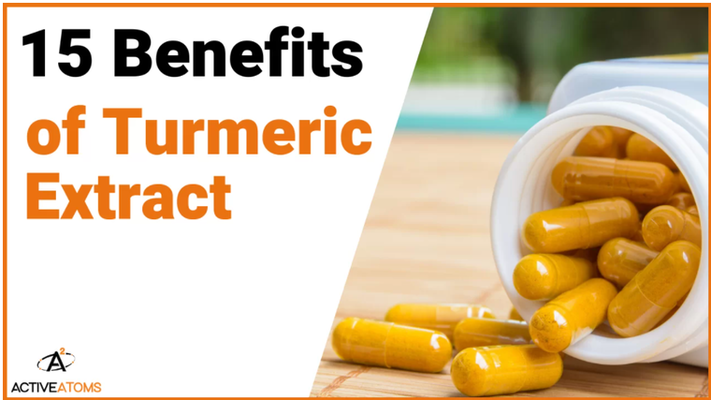
What can turmeric do for you? As you will learn quickly, it’s quite a lot! Turmeric has been studied for years as a popular nutraceutical dietary supplement that can provide numerous benefits for a wide variety of health issues. A nutraceutical is a botanical “phytochemical” that is commonly used to support the function and overall health of specific tissues and systems in the body. We’re going to explore the top 15 health benefits of turmeric in this article including:
- Anti-inflammatory Support
- Joint Pain
- Immune System
- Digestive Health
- Brain Health
- Cancer
- Autoimmune Disorders
- Skin Health
- Weight Loss
- Antibacterial and Antiviral Support
- Blood Pressure
- Cholesterol
- Diabetes
- Antioxidant Support
- Anxiety, Depression and Mood Disorders
What is the difference between turmeric extract and turmeric root?
 But before we dive in, let’s first take a moment to understand what turmeric is and how turmeric extract and turmeric root differ.
But before we dive in, let’s first take a moment to understand what turmeric is and how turmeric extract and turmeric root differ.
Known most commonly as a traditional herbal spice used in Indian and Chinese cuisine, turmeric comes from the Curcuma longa plant and is part of the ginger family. Turmeric’s health benefits can be attributed to a few chemical compounds in the spice, known as curcuminouds. The most popular curcuminoid is curcumin.
In the traditional turmeric cooking spice, curcumin is present in very small amounts — about 2-5%.1 And while you will still reap some of the health benefits by using turmeric in cooking, curcmumin is most effective in much higher doses. That’s where many people look to turmeric extract for added support. A high quality turmeric extract will contain around 95% of curcumin and will contain black pepper (piperine) to help the body more effectively absorb the curcumin.
In fact, studies show that by pairing curcumin with piperine, you increase the bioavailability2 of curcumin by 2000%.

Probably the biggest benefit of turmeric is its anti-inflammatory properties. Inflammation lies at the root of all modern disease and so the ability of turmeric to reduce systemic inflammation in the body is beneficial for many of the health issues we will discuss below.
One of the ways turmeric can reduce inflammation is by improving the markers of oxidative stress. As covered in a previous article, oxidative stress is an imbalance in the body between free radicals and antioxidants.
Free radicals are a part of our regular metabolic processes. In a normal healthy person, oxidative stress is a tool our body employs to create temporary inflammation to fight off an infection or heal a wound. Antioxidants counteract the effects of free radicals. Our body does make antioxidants naturally, but we can also get them from healthy food sources to even further reduce inflammation.
Studies show3 that curcumin has the ability to downregulate certain mediators of inflammation in the body, mainly nuclear factor (NF)-κB and inflammatory cytokines associated with diseases such as Alzheimer’s disease (AD), Parkinson’s disease, multiple sclerosis, epilepsy, cerebral injury, cardiovascular disease, metabolic syndrome, cancer, allergy, asthma, bronchitis, colitis, arthritis, renal ischemia, psoriasis, diabetes, obesity, depression, fatigue, and acquired immune deficiency syndrome (AIDS).
In one study4, after six weeks using a high quality curcuminoid supplementation, test subjects saw significantly reduced serum lipid peroxides, increased glutathione concentration (a powerful antioxidant in the body) as well as catalase activity — three parameters of oxidative stress.
Joint pain
 One common disease that is associated with inflammation is arthritis, also known as joint pain. When we injure a joint, the soft tissues around that joint create an inflammatory response that is quite painful. This mechanism is meant to protect the joint by stabilizing it, but as you can imagine, ongoing inflammation of a joint can be debilitating and uncomfortable.
One common disease that is associated with inflammation is arthritis, also known as joint pain. When we injure a joint, the soft tissues around that joint create an inflammatory response that is quite painful. This mechanism is meant to protect the joint by stabilizing it, but as you can imagine, ongoing inflammation of a joint can be debilitating and uncomfortable.One study5 on knee arthritis, a degenerative condition that leads to gradual wear on the cartilage of the knee, showed that taking 1500 mg of turmeric extract per day for 28 days decreased pain and inflammation associated with knee arthritis.
Similarly, rheumatoid arthritis (RA) is another inflammatory condition of the joints, however this disease is autoimmune in nature, meaning that the body’s immune system overcompensates and begins to attack itself — in this instance, your joints. In many ways it is much more destructive than other forms of arthritis
A 2016 systematic review6 of data analyzed from eight randomized clinical trials found that taking a high dose of curcmunin each day (1000 mg) for an average of 8-12 weeks helped reduce inflammation and associated pain from arthritis, including RA. Another big takeaway was the fact that curcumin appeared to be as effective as taking nonsteroidal anti-inflammatory drugs (NSAIDs), which come with their own set of health risks and side effects.
Fibromyalgia is another chronic disease associated with joint inflammation that causes widespread musculoskeletal pain, chronic fatigue and issues with sleep, memory and mood. A study conducted7 on 20 healthy male adults that looked at how curcumin affects delayed onset muscle soreness (DOMS) showed that those subjects who were treated with curcumin reported a reduction in lower limb pain and less muscle damage compared to those in the placebo group.
Lastly, turmeric has been shown to help reduce the pain and inflammation associated with sciatica, which results in lower back and leg pain caused by irritation or compression of the sciatic nerve. Curcumin has been shown8 to alleviate lumbar radiculopathy (nerve compression) by reducing neuroinflammation, oxidative stress and nociceptive factors such as TNF-α, interleukin-6 (IL6) and COX-2.
Immune System

We can’t talk about turmeric’s anti-inflammatory health benefits without discussing its role in our immune system. Our immune system is like our body guard and inflammation is a knight in (temporary) shining armor. When we fall sick or get a cut or infection, the body’s white blood cells produce antibodies, cytokines and other chemicals involved in our immune response to help us heal and stay healthy. This temporary inflammation protects the injured area and lets our body’s T-cells fight off foreign invaders. We need a healthy, strong immune system to prevent many chronic inflammatory, degenerative and autoimmune diseases9 like cardiovascular disease, dementia/Alzheimer’s disease, atherosclerosis, diabetes, and so on.
Turmeric has been shown10 to help modulate the efficiency of our immune system’s white blood cells by reducing interleukin-2 (IL-2) production, a pro-inflammatory cytokine that activates T-cells. This spice also has the ability to modulate the activation of T-cells, B-cells, macrophages, neutrophils, natural killer cells, and dendritic cells, all of which are part of our body’s complex immune response system.
Turmeric also boasts many antiviral properties that can help our immune systems more effectively fight off an attack by a foreign pathogen such as a viral, bacterial or fungal infection. We’ll dig a little deeper into this area further down in the article.
Digestive health

As a perfect segue into our next topic, 70% of our immune system is housed in our gut, so if we suffer from chronic digestive disorders such as irritable bowel syndrome (IBS) as well as autoimmune disease, including inflammatory bowel disease (IBD), Crohn’s disease and ulcerative colitis (UC), that chronic inflammation and bowel irregularity can create systemic inflammation.The good news is that there’s a lot of research and studies out there showing how turmeric can be beneficial in reducing and reversing the effects of these digestive disorders.
A 2014 meta-analysis review11 on the potential use of curcumin as therapy for IBD, showed the benefits of using curcumin to reduce inflammation through its inhibition of the NF-κB pathway and p38 MAPK in the intestinal mucosa. Over time, this allowed the intestinal mucosa to regain structure, prevent degradation and improve signal transduction.
Crohn’s disease is a type of IBD that manifests as distinct granulomas12, with inflammation often permeating transmurally and even affecting adjacent lymph nodes and epithelial tissue. Because there is damage and inflammation to our intestinal mucosa with Crohn’s disease, curcumin is an effective way to reduce inflammation in the gut lining thereby promoting better bowel motility and better signaling transduction12.
Ulcerative colitis is another type of IBD that leads to chronic inflammation of the colon, or large intestine, and rectum and causes ulcers that result in pain, bloody diarrhea, rectum bleeding and nutrient deficiencies due to malabsorption. A 2018 meta-analysis review13 on the use of curcumin as an adjuvant therapy for ulcerative colitis evaluated 380 patients and found a significant improvement on ulceration and on endoscopic response in those who were given curcumin as part of treatment.
Although IBS is a less severe form of IBD, it is nonetheless debilitating. It’s also typically a symptom of another underlying digestive conditions, and not a root cause. In one of the first ever meta-analyses14 of curcumin’s effect on IBS, an examination of five different studies found that its unique antioxidant and anti-inflammatory properties were able to modulate the gut microbiota to reduce an IBS flare up. Turmeric can be an effective natural remedy for easing IBS symptoms while you work with a practitioner to identify the root cause, typically a digestive issue such as leaky gut (intestinal permeability) or a potential pathogen.
Brain health
 Turmeric’s antioxidant benefits have been shown to positively benefit memory and cognitive function, in addition to reversing or preventing the effects of degenerative brain diseases like dementia and Alzheimer’s disease, as well as concussions and traumatic brain injuries.
Turmeric’s antioxidant benefits have been shown to positively benefit memory and cognitive function, in addition to reversing or preventing the effects of degenerative brain diseases like dementia and Alzheimer’s disease, as well as concussions and traumatic brain injuries.
One study showed15 that over the course of 18 months, a dose of 90 mg curcumin twice daily improved visual memory, attention, and selective reminding in those without dementia.
Another study showed16 that those who suffered a traumatic brain injury (TBI) or concussion, supplementing with turmeric extract saw a dramatic reduction of oxidative damage in the brain. The curcumin normalized levels of BDNF, synapsin I and CREB that the brain injury had altered.
Lastly, we know that curcuminoids can inhibit the formation and propagation of free radicals by decreasing low-density lipoprotein oxidation and the free radicals that contribute to neuron deterioration in Alzheimer’s as well as other neurological diseases including Huntington’s and Parkinson’s. One study demonstrated17 just 500 mg of curcuma oil given to rats significantly improved neurological deficit and counteracted oxidative stress. This topic is complicated and dense, so be sure to read our previous article on turmeric for Alzheimer’s and dementia for more in-depth studies and information.
Cancer
Curcumin has been widely studied as a way to prevent or treat certain cancers. In fact, there are over 35,000 scientific studies in the PubMed PMC database that explore the benefits of turmeric for cancer. We’ve yet to discuss this yet, but turmeric does possess certain anti-tumor and anti-cancer properties.
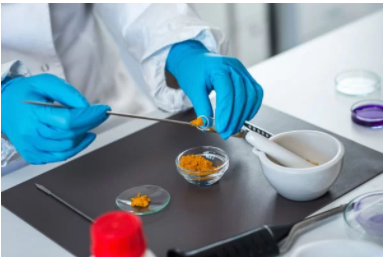
The same goes for turmeric’s benefits for colon cancer, one of the third leading causes of cancer death in the U.S. One of the reasons turmeric is effective is because of its chemopreventive qualities. Research shows20 that curcumin is a nontoxic agent that inhibits cellular pathways to create or promote carcinogenesis, mainly cyclooxygenase-2 (COX-2), which is present in many colon cancers.
When it comes to cervical cancer, turmeric may also pose some benefits. For example, a controlled, phase II study21 investigated whether curcumin could clear human papillomavirus (HPV) infections in patients with cervical cancer. It concluded that curcumin may slow down, destroy, or prevent the growth of precancerous and/or cancer cells associated with cervical cancer.
Recent research from the M.D. Anderson Cancer Center in Houston22 suggests that curcumin may help prevent the spread of breast cancer. In studies of mice, researchers found that curcumin helped stop the metastasis of breast cancer cells to the lungs by shutting down a protein active in the spread of breast cancer. And there other subsequent studies on humans in progress right now, too.
Given turmeric’s positive effects on brain health mentioned above, it’s also no surprise that it’s helpful in fighting certain brain cancers. In some preclinical in vitro and in vivo studies23, data shows curcumin to be an effective treatment for brain tumors including glioblastoma multiforme. These effects are potentiated by curcumin's ability to induce G2/M cell cycle arrest, activation of apoptotic pathways, induction of autophagy, disruption of molecular signaling, inhibition of invasion, and metastasis and by increasing the efficacy of existing chemotherapeutics.
Autoimmune Disorders
Turmeric has also been shown to help reduce the effects of many autoimmune disorders, including rheumatoid arthritis, psoriasis, diabetes, multiple sclerosis, Parkinson’s disease, IBD, and Crohn’s disease, among others. As we’ve briefly mentioned, an autoimmune disease is when your body’s immune system mistakenly attacks itself because it recognizes normal substances, organs or systems as “foreign invaders.” Eventually, our cells begin to attack themselves, leading to degeneration of the brain, gut, joints, skin cells, etc., which is what we generally mean when we talk about autoimmune conditions. There are over 80 known autoimmune diseases today, but we’ll cover just two in this section and discuss how turmeric may provide benefits.
Multiple sclerosis (MS) is a chronic autoimmune inflammatory disease affecting the central nervous system. The myelin sheath is a protective coating around our nerve cells in our central nervous system. With MS, there is continued damage to the myelin sheath that slows the transmission speed of messages traveling back and forth between our brain and spinal cord to the rest of our body. Over time this leads to severe degeneration to our motor system, causing limb numbness, weakness, trouble balancing and eventually, walking.
Curcumin has been shown24 to possess therapeutic benefits for those suffering with MS by reducing oxidative stress and by interacting and modulating multiple cell signaling pathways to prevent the development of various autoimmune neurological diseases, including MS. Curcumin’s anti-inflammatory properties help modulate cell cycle regulatory proteins, enzymes, cytokines, and transcription factors in CNS-related disorders.
Similarly, turmeric also provides benefits to those suffering with Parkinson’s disease, an age-related neurodegenerative disease that also affects our motor system. Because turmeric can cross the blood-brain barrier, it’s capable of offering neuroprotective benefits in neurological disorders. But there is also a connection between Parkinson’s disease and our gut-brain axis, where something known as intestinal impermeability (or leaky gut) and bacterial overgrowth can cause systemic inflammation by initiating alpha-synuclein (αS) misfolding in the brain.
We already know that abnormal accumulation of αS in the brain is a clear sign of Parkinson’s disease and this usually happens when we are chronically exposed to certain neurotoxins that lead to oxidative and mitochondrial cell damage. Studies show25 that curcumin has the potential to reduce αS-induced toxicity, as well as reduced reactive oxygen species (ROS), protecting our cells against apoptosis (cell suicide) common in those with neurodegenerative diseases like Parkinon’s.
Weight loss
 When we look at the benefits of turmeric for weight loss, we again are looking at inflammation. Why? People who are overweight or obese have a much higher storage of adipose tissue, or fat cells and there is a strong correlation between a higher percentage of body fat and systemic inflammation.
When we look at the benefits of turmeric for weight loss, we again are looking at inflammation. Why? People who are overweight or obese have a much higher storage of adipose tissue, or fat cells and there is a strong correlation between a higher percentage of body fat and systemic inflammation.
Over time, excessive stored micronutrients in our fat cells cause the body to release inflammatory mediators29 tumor necrosis factor α and interleukin 6 (IL-6) as well as a protein hormone, adiponectin, that causes oxidative stress and inflammation.
Not only does curcumin help to reduce these pro-inflammatory markers and the associated oxidative stress as we’ve discussed further up in the article, but it also promotes the browning of white adipose tissue30, creating beige adipocytes in their place, which can burn fat to produce heat. This heat created can increase our metabolism, which aids in weight loss over time. In fact, the study found that 50 or 100 mg/kg/day of curcumin decreased body weight and fat mass without affecting food intake in mice.
Of course, weight loss is complex and must be thought about in a much bigger context beyond simply supplementing with curcumin. That said, adding curcumin to your overall health regimen can be an effective way to help safely aid in weight loss, combined with diet and lifestyle changes.
Antibacterial and antiviral support
There are many herbs and spices that boast antibacterial, antifungal and antiviral properties and turmeric is one of those herbs.
Although curcumin’s antiviral properties are still being explored in studies, we’ve seen thus far that the spice has already been shown31 to act against various important human pathogens like the influenza virus, Zika virus, hepatitis C virus, herpes simplex virus 2 (HSV-2), HIV and strains of Staphylococcus, Streptococcus, and Pseudomonas.
One of the reasons curcumin may be so effective against these viral and bacterial infections is due to the fact of curcumin’s immune supporting, antioxidant and anti-inflammatory properties. Curcumin plays an inhibitory role against infection by either a direct interference of viral replication machinery or suppression of cellular signaling pathways essential for viral replication, such as PI3K/Akt, NF-κB.
Blood pressure
 Blood pressure is pressure created by the heart32 as it pushes blood through our blood vessels and is a result of two forces: systolic pressure, which occurs as blood pumps out of the heart and into the arteries and diastolic pressure, which is created as the heart rests between heart beats. A typical blood pressure reading is 120/80, however this can vary based on many contributing factors.
Blood pressure is pressure created by the heart32 as it pushes blood through our blood vessels and is a result of two forces: systolic pressure, which occurs as blood pumps out of the heart and into the arteries and diastolic pressure, which is created as the heart rests between heart beats. A typical blood pressure reading is 120/80, however this can vary based on many contributing factors.
If you are worried about having high blood pressure as you age, you might look to turmeric for some support. Of course, this should be combined with a healthy diet and regular movement, however, studies show33 that curcumin can lower systolic blood pressure in people who supplemented with it for longer than 12 weeks.
Skin Health
 Another area where turmeric shines is when it comes to skin conditions such as autoimmune conditions like psoriasis and eczema, as well as ongoing acne and aging. These skin disorders are often rooted in inflammation, which is one of the reasons turmeric can be healing.
Another area where turmeric shines is when it comes to skin conditions such as autoimmune conditions like psoriasis and eczema, as well as ongoing acne and aging. These skin disorders are often rooted in inflammation, which is one of the reasons turmeric can be healing.
With psoriasis, a chronic inflammatory condition that results in thick silvery plaques from an uncontrolled proliferation of keratinocytes, curcumin has been shown to suppress the excessive production of TNF-α by activated macrophages. A recent randomized, double-blind, placebo-controlled clinical trial26 reported the anti-psoriatic effects of oral administration of a novel bioavailable lecithin-based turmeric extract brand saw a reduction of cutaneous symptoms together with a decrease of serum levels of IL-22. Other studies on animals show that using curcumin topically can also reduce the effects of psoriasis inflammation through the inhibitions of the potassium channels (subtypes Kv1.3) expressed in T-cells and the reduction of IL-17A, IL-17F, IL-22, and other pro-inflammatory cytokines in ear samples taken from mice26.
Similarly, turmeric has also been shown to help with eczema, also known as atopic dermatitis (AD), a condition that arises from a combination of genetic, environmental and immune factors26. The phytocomponent p-hydroxycinnamic acid (HCA) isolated from turmeric has been shown to modulate the protein kinase C (PKC) theta (PKCθ) pathway in vitro, leading to the inhibition of T-cell activation. Oral administration has been shown27 to reduce the production of certain proinflammatory cytokines by keratinocytes, improving dermo-epidermal thickening and inflammation of AD in mice.
Turmeric also has a role in reducing skin aging. Oftentimes those with aging skin as well as those with age-related inflammatory conditions like Alheimer’s disease and metabolic syndrome, have increased levels of cytokines such as IL-1,2,6,12,15,18,22,23, TNF-α, and INF. A randomized, double-blind, placebo-controlled trial28 on 47 healthy subjects receiving daily hot water extract of curcumin reported a significant inhibition of the increase in ultraviolet B-induced TNF-α and IL-1β at the mRNA and protein levels compared to placebo. In addition to the anti-inflammatory effects, this study also suggests that curcumin might be an effective moisturizing agent.
Cholesterol
Cholesterol is a type of lipid (fat) that our bodies need to survive. It’s vital for creating cell membranes, hormones, the fat-soluble vitamin D and bile acids required for fat digestion. There are two main types of cholesterol: low-density lipoprotein (LDL), referred to as the “bad” cholesterol) and high-density lipoprotein (HDL), also known as the “good” cholesterol.
There are two main types of cholesterol: low-density lipoprotein (LDL), referred to as the “bad” cholesterol) and high-density lipoprotein (HDL), also known as the “good” cholesterol.
Our diets play a major factor in the types of cholesterol we have in our bodies. When we consume a diet high in processed foods, refined carbohydrates and sugars, fast food, trans fats, hydrogenated oils and other foods lacking in nutrients, that raises LDL.
When you have too much LDL circulating in the body as a result of poor diet, this can create plaque build up in our arterial walls, which can eventually lead to high blood pressure, blood clots, angina (pain in the chest with exertion), heart attacks and stroke.
Turmeric has been shown34 to elevate HDL cholesterol while lowering LDL cholesterol and even reduce35 both total cholesterol and LDL cholesterol levels in patients with acute coronary syndrome (ACS). Turmeric can also help improve blood flow and circulation and actively works against the clogging of arteries.
Diabetes
Diabetes mellitus (DM) is an epidemic in the U.S. It’s estimated that over 29 million Americans have some form of diabetes and it’s growing fast as we continue to consume diets high in processed foods, refined sugars/carbohydrates and low in nutrients, and live highly sedentary and toxic lifestyles.
form of diabetes and it’s growing fast as we continue to consume diets high in processed foods, refined sugars/carbohydrates and low in nutrients, and live highly sedentary and toxic lifestyles.
Known mostly as a metabolic disorder, diabetes occurs when the body struggles to control insulin, a hormone that regulates our blood sugar, among other things in the body. Those with diabetes tend to have higher than normal levels of glucose (sugar) in their blood that affects their mood, appetite, weight, and overall health.
The good news is that there are many natural ways to reverse diabetes, starting with diet and lifestyle changes in addition to supplementation. Turmeric is one of those supplements that has been shown to help with DM. A systematic review36 of over 200 compiled research papers on diabetes and curcumin showed that this spice can help improve insulin resistance and cholesterol levels thereby helping people manage their blood sugar levels and reduce their risk of diabetes.
 If you recall in the beginning of the article we talked about the role of turmeric in reducing inflammation associated with oxidative stress. Antioxidants are powerful molecules that fight the negative effects of too many free radicals in the body. Even though our bodies make antioxidants, sometimes our detoxification pathways get blocked, or our body isn’t working as optimally so we can get additional antioxidant support from supplements, and plant-based foods.
If you recall in the beginning of the article we talked about the role of turmeric in reducing inflammation associated with oxidative stress. Antioxidants are powerful molecules that fight the negative effects of too many free radicals in the body. Even though our bodies make antioxidants, sometimes our detoxification pathways get blocked, or our body isn’t working as optimally so we can get additional antioxidant support from supplements, and plant-based foods.
Research shows3 that a high concentration of curcumin can increase serum activities of antioxidants such as superoxide dismutase (SOD) that reduce oxidative stress, and therefore systemic inflammation in the body.
There are a few ways in which turmeric’s antioxidant effects work. First, it can seek out different forms of free radicals, like reactive oxygen species (ROS) and it also can modulate the activity of certain enzymes, including SOD, catalase and GSH (glutathione) to neutralize free radicals.
Anxiety, Depression, and Mood
 If you suffer from ongoing anxiety, depression and other mood disorders, turmeric might offer some ongoing relief.
If you suffer from ongoing anxiety, depression and other mood disorders, turmeric might offer some ongoing relief.
In one double-blind placebo-controlled study37, a group of 108 men between 31 and 59 years of age took either 1,000 mg of curcumin or a placebo for a six week treatment period. The results indicated that chronic supplementation of curcumin resulted in antidepressant behavior in the group compared to the placebo. The curcumin decreased inflammatory cytokines interleukin 1β and tumor necrosis factor α level, increases plasma brain-derived neurotrophic factor levels, and decreases salivary cortisol concentrations compared with placebo group, further pointing to the potential benefits of curcumin to reverse the development of depression and enhance the outcome of antidepressant treatments.
Similarly, a January 2017 systematic review38 of over 100 different studies on psychiatric conditions, concluded that curcumin is effective against post traumatic stress disorder (PTSD), obsessive compulsive disorder (OCD), and psychotic disorders in animal studies. In human trials on anxiety and depression, studies found39 that curcumin alone was effective in relieving acute anxiety and it also enhanced the effects of commonly-prescribed antidepressants like fluoxetine (Prozac) and desipramine (Norpramin).
One reason turmeric is effective for anxiety and depression is because it influences certain biological mechanisms common in those disorders, such as oxidative stress pathways and immune-inflammatory activity. Curcumin also modulates monoaminergic action, which is responsible for regulating neurotransmitters, namely dopamine, serotonin, norepinephrine, and epinephrine — the hormones primarily responsible for our mood and energy response.
How much turmeric should you take daily?
Many studies recommend taking between 500-2000 mg per day as the general dosing for turmeric extract. That may seem like a pretty wide range, but you have to remember that everyone has their own unique bioindividual needs, and you might require more depending on your specific use case.
For example, the Arthritis Foundation40 recommends 1000 mgs per day of curcumin for the treatment of osteoarthritis.
Again, you’ll also want to ensure you are using a high quality turmeric extract like Active Atoms that contains 95% curcumin and BioPerine for maximum absorption and to unlock many of the therapeutic and anti-inflammatory benefits.
You can read more on dosing in this article.
Is Turmeric safe?
 While most studies do recommend a range of 500-2000 mg/day of turmeric extract, one of the positive characteristics of this spice is that it has relatively low levels of toxicity in high doses. In fact, in one study41, patients with pancreatic cancer were given a therapeutic dose of 8 g of curcumin a day and researchers reported it was safe and well-tolerated by the patients. That’s nearly 4x more than the recommended dosage of 2000 mg.
While most studies do recommend a range of 500-2000 mg/day of turmeric extract, one of the positive characteristics of this spice is that it has relatively low levels of toxicity in high doses. In fact, in one study41, patients with pancreatic cancer were given a therapeutic dose of 8 g of curcumin a day and researchers reported it was safe and well-tolerated by the patients. That’s nearly 4x more than the recommended dosage of 2000 mg.
Of course, your needs will vary based on your specific use case and you’ll always want to work with a professional to identify the right dosing for your needs.
What are potential side effects of turmeric?
Turmeric is thought to be generally safe for most people. When exposed topically, some people do experience a mild skin rash that will go away once you discontinue use. You might also want to avoid turmeric if you have gallstones or bile duct dysfunction and consult your doctor about usage if you are pregnant.
It’s also worth mentioning that turmeric can interfere with some prescription medications, including those taking warfarin or other anticoagulants or blood thinners. Curcumin can worsen the effects of these anti-clotting medications. Piperine can also interfere with the elimination of some medications, including phenytoin (Dilantin), propranolol (Inderal), and theophylline.
For a full list of side effects, read this comprehensive article.
As always, it’s a good idea to consult your doctor before adding a new supplement to your health protocol and if you experience any unusual symptoms, discontinue use and contact your medical practitioner immediately.
Is there lead in turmeric?
 Unfortunately, a lot of the turmeric on the market has been adulterated with lead, a heavy metal that is toxic to humans.
Unfortunately, a lot of the turmeric on the market has been adulterated with lead, a heavy metal that is toxic to humans.
There’s a famous study conducted in 2019 by Stanford researchers who uncovered that some of the turmeric coming out of Bangladesh, India had been contaminated with lead. In some instances, this contamination was traced all the way back to the 1980s. According to the study42, following a major flood in the area that dulled the color of a lot of the turmeric crops, many processors began adding lead chromate -- an industrial pigment — as a cheap and fast way to restore the vibrant yellow color.
The sad reality is that most of us will have some level of lead contamination (it’s in our water, soil, and plants and vegetables), and there is no acceptable level of lead today. We can detoxify from heavy metals but it’s recommended to do that under the guidance of a health professional.
That’s why it’s important that you do your research when searching for a turmeric extract supplement to ensure that you are purchasing a high quality product like Active Atoms that is rigorously tested for lead toxicity and contamination.
Final thoughts
 While turmeric may feel like the next super herb that offers many significant health benefits, it’s important to remember that many of these health issues require a holistic approach to managing symptoms and reducing your risk. Turmeric is an excellent addition to your regular health regimen, but you’ll want to be sure that you are eating a whole food nutrient-dense diet, and implementing certain healthy lifestyle practices, including getting in regular exercise and sleep, implementing stress management techniques and practicing self-care.
While turmeric may feel like the next super herb that offers many significant health benefits, it’s important to remember that many of these health issues require a holistic approach to managing symptoms and reducing your risk. Turmeric is an excellent addition to your regular health regimen, but you’ll want to be sure that you are eating a whole food nutrient-dense diet, and implementing certain healthy lifestyle practices, including getting in regular exercise and sleep, implementing stress management techniques and practicing self-care.
But if you are ready to try adding turmeric extract into your daily routine — and your doctor approves — then I definitely encourage you to check out Active Atoms turmeric extract today!
This article originally appeared on the Active Atoms website and is being reprinted with their permission.
References
- Jacob, A., Wu, R., Zhou, M., & Wang, P. (2007). Mechanism of the Anti-inflammatory Effect of Curcumin: PPAR-gamma Activation. PPAR research, 2007, 89369. https://doi.org/10.1155/2007/89369
- Shoba, G., Joy, D., Joseph, T., Majeed, M., Rajendran, R., & Srinivas, P. S. (1998). Influence of piperine on the pharmacokinetics of curcumin in animals and human volunteers. Planta medica, 64(4), 353–356. https://doi.org/10.1055/s-2006-957450
- Hewlings, S. J., & Kalman, D. S. (2017). Curcumin: A Review of Its' Effects on Human Health. Foods (Basel, Switzerland), 6(10), 92. https://doi.org/10.3390/foods6100092
- Sahebkar, A., Serban, M.-C., Ursoniu, S., & Banach, M. (2015, January 30). Effect of curcuminoids on oxidative stress: A systematic review and meta-analysis of randomized controlled trials. Retrieved from https://www.sciencedirect.com/science/article/pii/S1756464615000092
- Kuptniratsaikul, V., Dajpratham, P., Taechaarpornkul, W., Buntragulpoontawee, M., Lukkanapichonchut, P., Chootip, C., Saengsuwan, J., Tantayakom, K., & Laongpech, S. (2014). Efficacy and safety of Curcuma domestica extracts compared with ibuprofen in patients with knee osteoarthritis: a multicenter study. Clinical interventions in aging, 9, 451–458. https://doi.org/10.2147/CIA.S58535
- Daily, J. W., Yang, M., & Park, S. (2016). Efficacy of Turmeric Extracts and Curcumin for Alleviating the Symptoms of Joint Arthritis: A Systematic Review and Meta-Analysis of Randomized Clinical Trials. Journal of medicinal food, 19(8), 717–729. https://doi.org/10.1089/jmf.2016.3705
- Drobnic, F., Riera, J., Appendino, G. et al. Reduction of delayed onset muscle soreness by a novel curcumin delivery system (Meriva®): a randomised, placebo-controlled trial. J Int Soc Sports Nutr 11, 31 (2014). https://doi.org/10.1186/1550-2783-11-31
- Xiao, L., Ding, M., Fernandez, A., Zhao, P., Jin, L., & Li, X. (2017). Curcumin alleviates lumbar radiculopathy by reducing neuroinflammation, oxidative stress and nociceptive factors. European cells & materials, 33, 279–293. https://doi.org/10.22203/eCM.v033a21
- Harvard Health Publishing. (2006, April). Inflammation: A unifying theory of disease. Retrieved from https://www.health.harvard.edu/newsletter_article/Inflammation_A_unifying_theory_of_disease
- Jagetia, G. C., & Aggarwal, B. B. (2007). "Spicing up" of the immune system by curcumin. Journal of clinical immunology, 27(1), 19–35. https://doi.org/10.1007/s10875-006-9066-7
- Vecchi Brumatti, L., Marcuzzi, A., Tricarico, P. M., Zanin, V., Girardelli, M., & Bianco, A. M. (2014). Curcumin and inflammatory bowel disease: potential and limits of innovative treatments. Molecules (Basel, Switzerland), 19(12), 21127–21153. https://doi.org/10.3390/molecules191221127
- Burge, K., Gunasekaran, A., Eckert, J., & Chaaban, H. (2019). Curcumin and Intestinal Inflammatory Diseases: Molecular Mechanisms of Protection. International journal of molecular sciences, 20(8), 1912. https://doi.org/10.3390/ijms20081912
- Shreiner, A., Kao, J., & Young, V. (2015). The gut microbiome in health and in disease. Current Opinion in Gastroenterology, 31, 69–75. doi: DOI: 10.1097/MOG.0000000000000139
- Ng, Q. X., Soh, A., Loke, W., Venkatanarayanan, N., Lim, D. Y., & Yeo, W. S. (2018). A Meta-Analysis of the Clinical Use of Curcumin for Irritable Bowel Syndrome (IBS). Journal of clinical medicine, 7(10), 298. https://doi.org/10.3390/jcm7100298
- Seddon N, D’Cunha NM, Mellor DD, McKune AJ, Georgousopoulou EN, Panagiotakos DB, et al. Effects of Curcumin on Cognitive Function—A Systematic Review of Randomized Controlled Trials. Explor Res Hypothesis Med. 2019;4(1):1. doi: 10.14218/ERHM.2018.00024
- Wu, A., Ying, Z., & Gomez-Pinilla, F. (2006). Dietary curcumin counteracts the outcome of traumatic brain injury on oxidative stress, synaptic plasticity, and cognition. Experimental neurology, 197(2), 309–317. https://doi.org/10.1016/j.expneurol.2005.09.004
- Mishra, S., & Palanivelu, K. (2008). The effect of curcumin (turmeric) on Alzheimer's disease: An overview. Annals of Indian Academy of Neurology, 11(1), 13–19. https://doi.org/10.4103/0972-2327.40220
- Schmidt, K. T., & Figg, W. D. (2016). The potential role of curcumin in prostate cancer: the importance of optimizing pharmacokinetics in clinical studies. Translational cancer research, 5(Suppl 6), S1107–S1110. https://doi.org/10.21037/tcr.2016.11.04
- Teiten, M. H., Gaascht, F., Eifes, S., Dicato, M., & Diederich, M. (2010). Chemopreventive potential of curcumin in prostate cancer. Genes & nutrition, 5(1), 61–74. https://doi.org/10.1007/s12263-009-0152-3
- Park, J., & Conteas, C. N. (2010). Anti-carcinogenic properties of curcumin on colorectal cancer. World journal of gastrointestinal oncology, 2(4), 169–176. https://doi.org/10.4251/wjgo.v2.i4.169
- Curcumin for the Treatment of Patients with Cervical Intraepithelial Neoplasia. (n.d.). Retrieved from https://www.cancer.gov/about-cancer/treatment/clinical-trials/search/v?id=NCI-2020-01951&r=1
- (2005, October 15). Curcumin halts spread of breast cancer in mice. Retrieved from https://www.eurekalert.org/pub_releases/2005-10/uotm-chs101305.php
- Klinger, N. V., & Mittal, S. (2016). Therapeutic Potential of Curcumin for the Treatment of Brain Tumors. Oxidative medicine and cellular longevity, 2016, 9324085. https://doi.org/10.1155/2016/9324085
- Qureshi, M., Al-Suhaimi, E. A., Wahid, F., Shehzad, O., & Shehzad, A. (2018). Therapeutic potential of curcumin for multiple sclerosis. Neurological sciences : official journal of the Italian Neurological Society and of the Italian Society of Clinical Neurophysiology, 39(2), 207–214. https://doi.org/10.1007/s10072-017-3149-5
- Wang, M.S., Boddapati, S., Emadi, S. et al. Curcumin reduces α-synuclein induced cytotoxicity in Parkinson's disease cell model. BMC Neurosci 11, 57 (2010). https://doi.org/10.1186/1471-2202-11-57
- Vollono, L., Falconi, M., Gaziano, R., Iacovelli, F., Dika, E., Terracciano, C., Bianchi, L., & Campione, E. (2019). Potential of Curcumin in Skin Disorders. Nutrients, 11(9), 2169. https://doi.org/10.3390/nu11092169
- Heng, M. C., Song, M. K., Harker, J., & Heng, M. K. (2000). Drug-induced suppression of phosphorylase kinase activity correlates with resolution of psoriasis as assessed by clinical, histological and immunohistochemical parameters. The British journal of dermatology, 143(5), 937–949. https://doi.org/10.1046/j.1365-2133.2000.03767.x
- Asada, K., Ohara, T., Muroyama, K., Yamamoto, Y., & Murosaki, S. (2019). Effects of hot water extract of Curcuma longa on human epidermal keratinocytes in vitro and skin conditions in healthy participants: A randomized, double-blind, placebo-controlled trial. Journal of cosmetic dermatology, 18(6), 1866–1874. https://doi.org/10.1111/jocd.12890
- Ellulu MS, Patimah I, Khaza’Ai H, Rahmat A, Abed Y. Obesity and inflammation: the linking mechanism and the complications. Archives of Medical Science. 2017;4:851-863. doi:10.5114/aoms.2016.58928
- Wang, S., Wang, X., Ye, Z., Xu, C., Zhang, M., Ruan, B., Wei, M., Jiang, Y., Zhang, Y., Wang, L., Lei, X., & Lu, Z. (2015). Curcumin promotes browning of white adipose tissue in a norepinephrine-dependent way. Biochemical and biophysical research communications, 466(2), 247–253. https://doi.org/10.1016/j.bbrc.2015.09.018
- Praditya, D., Kirchhoff, L., Brüning, J., Rachmawati, H., Steinmann, J., & Steinmann, E. (2019). Anti-infective Properties of the Golden Spice Curcumin. Frontiers in microbiology, 10, 912. https://doi.org/10.3389/fmicb.2019.00912
- What is High Blood Pressure? (2016, October 31). Retrieved from https://www.heart.org/en/health-topics/high-blood-pressure/the-facts-about-high-blood-pressure/what-is-high-blood-pressure
- Hadi, A., Pourmasoumi, M., Ghaedi, E., & Sahebkar, A. (2019). The effect of Curcumin/Turmeric on blood pressure modulation: A systematic review and meta-analysis. Pharmacological research, 150, 104505. https://doi.org/10.1016/j.phrs.2019.104505
- Naidu, K. A., & Thippeswamy, N. B. (2002). Inhibition of human low density lipoprotein oxidation by active principles from spices. Molecular and cellular biochemistry, 229(1-2), 19–23. https://doi.org/10.1023/a:1017930708099
- Alwi, I., Santoso, T., Suyono, S., Sutrisna, B., Suyatna, F. D., Kresno, S. B., & Ernie, S. (2008). The effect of curcumin on lipid level in patients with acute coronary syndrome. Acta medica Indonesiana, 40(4), 201–210.
- Zhang, D. W., Fu, M., Gao, S. H., & Liu, J. L. (2013). Curcumin and diabetes: a systematic review. Evidence-based complementary and alternative medicine : eCAM, 2013, 636053. https://doi.org/10.1155/2013/636053
- Yu, J. J., Pei, L. B., Zhang, Y., Wen, Z. Y., & Yang, J. L. (2015). Chronic Supplementation of Curcumin Enhances the Efficacy of Antidepressants in Major Depressive Disorder: A Randomized, Double-Blind, Placebo-Controlled Pilot Study. Journal of clinical psychopharmacology, 35(4), 406–410. https://doi.org/10.1097/JCP.0000000000000352
- Lopresti A. L. (2017). Curcumin for neuropsychiatric disorders: a review of in vitro, animal and human studies. Journal of psychopharmacology (Oxford, England), 31(3), 287–302. https://doi.org/10.1177/0269881116686883
- Esmaily H, Sahebkar A, Iranshahi M, et al. An investigation of the effects of curcumin on anxiety and depression in obese individuals: A randomized controlled trial. Chin J Integr Med. 2015;21(5):332‐338. doi:10.1007/s11655-015-2160-z
- Supplement and Herb Guide for Arthritis Symptoms . (n.d.). Retrieved from https://www.arthritis.org/health-wellness/treatment/complementary-therapies/supplements-and-vitamins/supplement-and-herb-guide-for-arthritis-symptoms
- Gupta, S. C., Patchva, S., & Aggarwal, B. B. (2013). Therapeutic roles of curcumin: lessons learned from clinical trials. The AAPS journal, 15(1), 195–218. https://doi.org/10.1208/s12248-012-9432-8
- Valenti, E., Hansen, A. J., MacCormick, H., Armitage, H., & Sashin, D. (2019, November 1). Contaminated turmeric linked to high blood lead levels in Bangladesh. Retrieved from https://scopeblog.stanford.edu/2019/11/01/contaminated-turmeric-linked-to-high-blood-lead-levels-in-bangladesh/






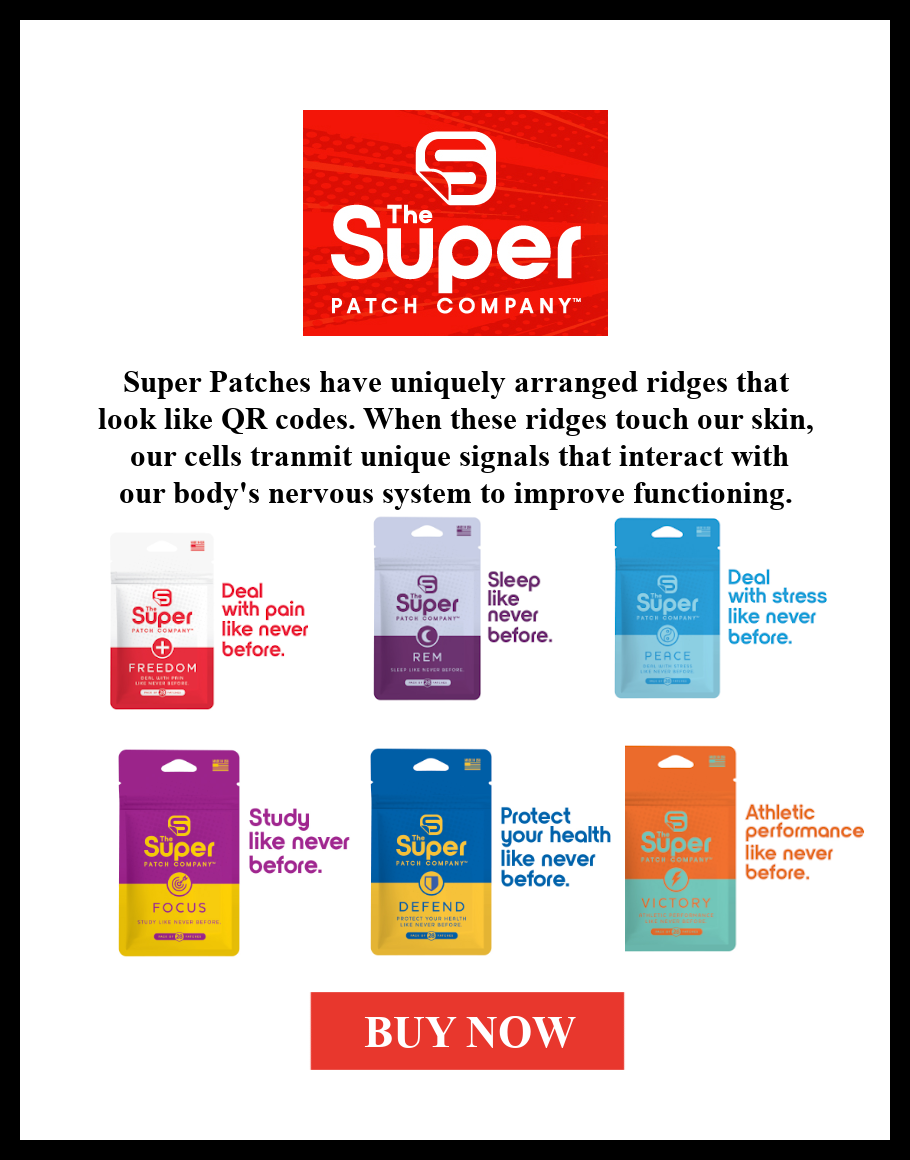
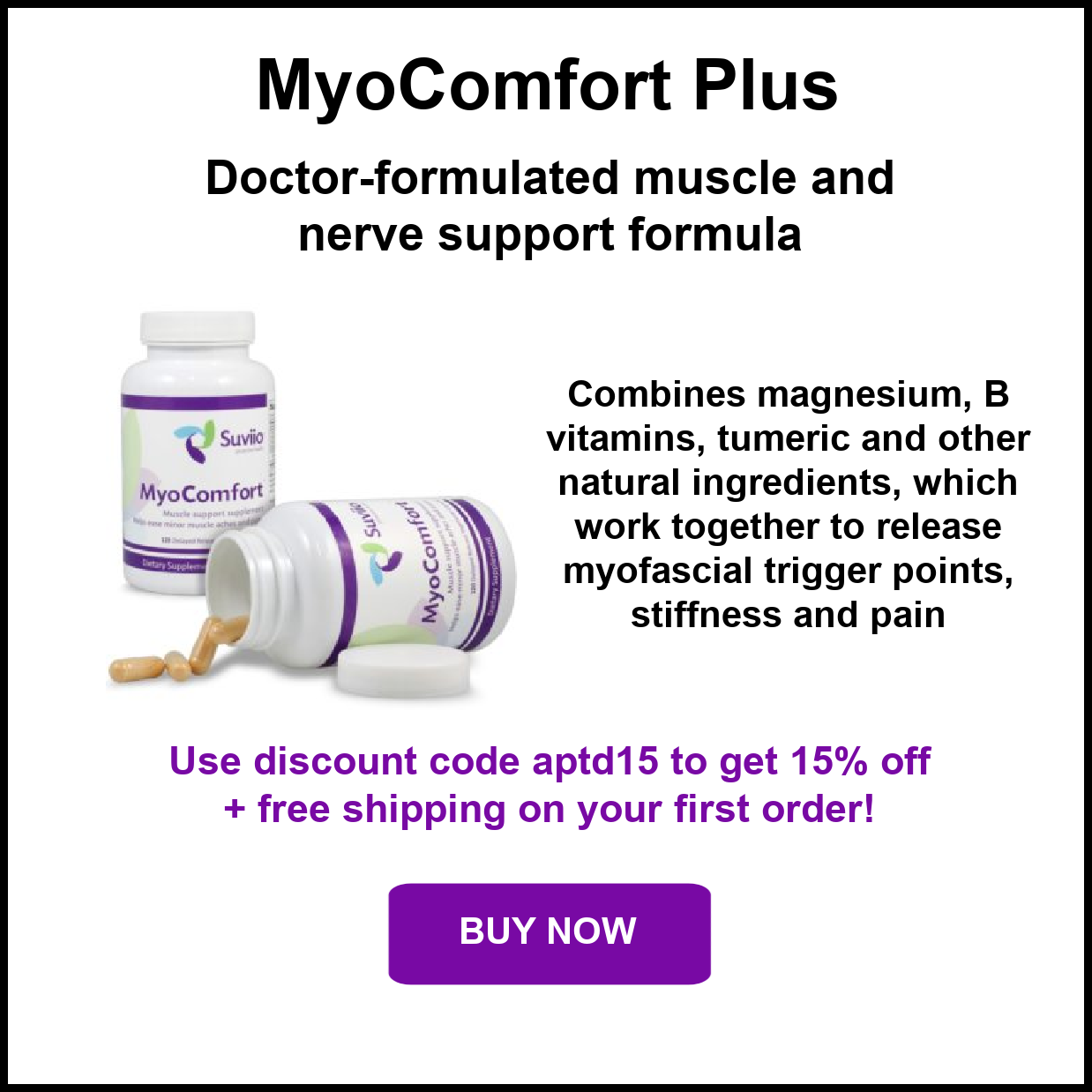
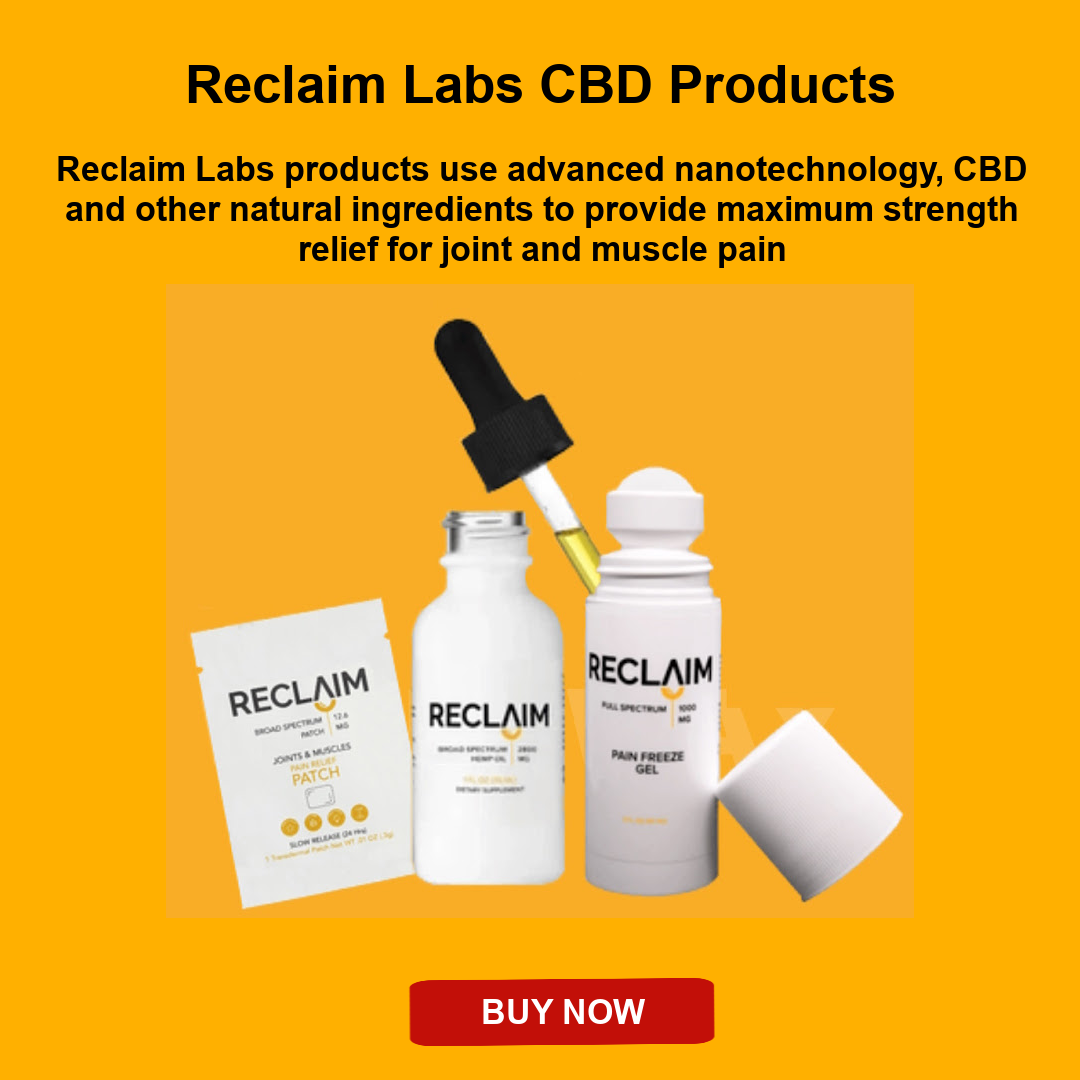


Comments